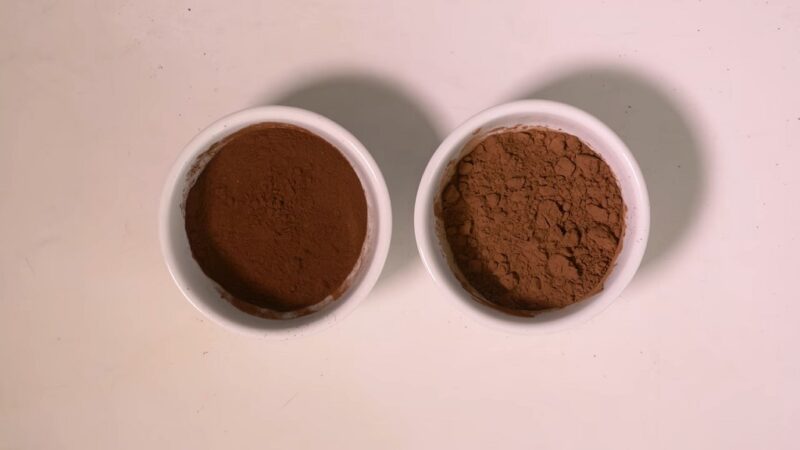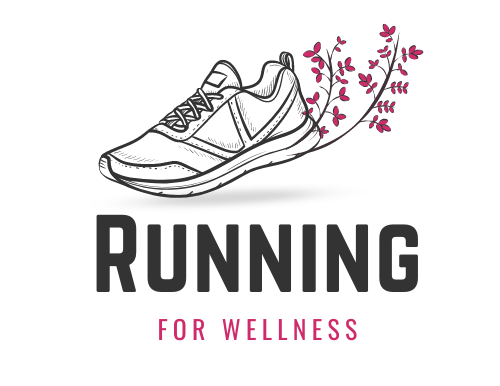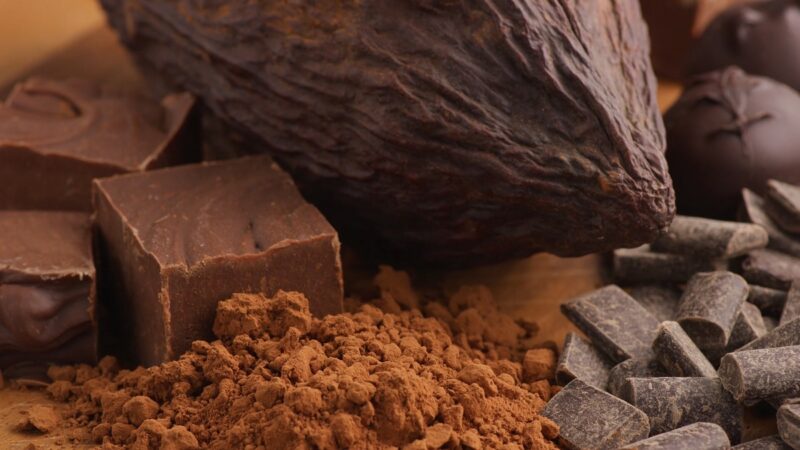The concrete answer is this: cocoa, especially in its purest forms like natural cocoa powder or dark chocolate, is rich in flavonoids, magnesium, iron, and healthy plant compounds that improve circulation, reduce inflammation, and enhance recovery.
For athletes, these benefits translate into better endurance, faster recovery after workouts, and stronger cardiovascular performance.
Unlike simple sugars or processed snacks, cocoa delivers performance-supporting nutrients with measurable impact on energy metabolism and muscle health.
That is why many sports nutritionists now recommend cocoa as part of a balanced training diet rather than treating it only as an indulgence.
The Science Behind Cocoa’s Nutritional Power

To understand why cocoa deserves a place in an athlete’s diet, it helps to look at its core nutritional and bioactive profile.
| Nutrient/Compound | Role in the Body | Direct Athletic Benefit |
| Flavanols | Increase nitric oxide, relax blood vessels | Improved circulation, oxygen delivery, and endurance |
| Magnesium | Supports muscle contraction and bone strength | Prevents cramps, supports strong bones under load |
| Iron | Builds hemoglobin and carries oxygen | Reduces fatigue, maintains stamina in long training |
| Potassium | Balances electrolytes, prevents dehydration | Keeps muscles firing efficiently |
| Polyphenols | Neutralize free radicals | Less oxidative stress, faster muscle recovery |
| Theobromine | Gentle stimulant, vasodilator | Improves alertness without caffeine crashes |
Athletes often supplement magnesium, potassium, and iron separately, but cocoa naturally bundles them in one food source, providing synergy and balance.
Cardiovascular Performance

One of the biggest advantages of cocoa for athletes is its effect on circulation. Flavanols found in cocoa increase nitric oxide levels in the blood. This allows arteries to widen, improving oxygen and nutrient delivery to working muscles.
For endurance athletes, runners, cyclists, and swimmers, this can lead to measurable improvements in VO₂ max and time-to-exhaustion.
Research has shown that athletes consuming cocoa flavanols regularly demonstrate lower blood pressure, improved vessel elasticity, and reduced cardiovascular strain during high-intensity exercise.
Better circulation also speeds up the removal of waste products like lactic acid, meaning less fatigue during prolonged training.
Recovery and Muscle Protection
Training breaks down muscles; recovery rebuilds them. Cocoa helps both phases. Its antioxidants fight oxidative stress caused by intense training, which otherwise delays muscle repair.
The magnesium in cocoa supports muscle relaxation and protein synthesis, reducing soreness and stiffness after workouts.
Practical benefits athletes report:
- Less Delayed Onset Muscle Soreness (DOMS): Cocoa intake after strenuous workouts has been linked with reduced soreness in the following 24–48 hours.
- Improved Glycogen Restoration: When paired with carbohydrates, cocoa enhances glucose uptake in muscles, speeding up energy replenishment.
- Stronger Long-Term Recovery: Antioxidant protection reduces micro-damage in tissues, keeping athletes healthier across an entire training season.
Cocoa and Mental Performance
Athletes compete with both body and mind. Cocoa compounds stimulate serotonin and dopamine pathways in the brain, stabilizing mood and reducing anxiety. Theobromine provides gentle stimulation, increasing alertness without the jittery side effects of caffeine.
For endurance events that require hours of focus or competitions that demand calm precision under pressure, cocoa is a natural performance aid.
Some studies suggest cocoa intake improves reaction time and decision-making under stress, skills highly relevant in team sports and combat sports.
Practical Ways Athletes Can Use

The form of cocoa matters. Processed milk chocolate is loaded with sugar and fat, which cancel out many benefits. Athletes should aim for raw, dark, and minimally processed cocoa products.
| Cocoa Form | Best Timing for Athletes | Benefits |
| Pure cocoa powder | Post-workout shake with protein | Anti-inflammatory, recovery support |
| Dark chocolate (70%+ cocoa) | Pre-training a small dose | Energy, circulation, focus |
| Cocoa nibs | Snack during endurance events | Sustained energy, antioxidants |
| Cocoa beverages (low sugar) | Afternoon energy boost | Mental clarity, reduced fatigue |
After looking at these options, it becomes clear that cocoa can fit seamlessly into different parts of an athlete’s daily routine without feeling forced or complicated.
The key is using the right form at the right time. Pure cocoa powder works best in structured meals like shakes or breakfast bowls, while dark chocolate can serve as a convenient pre-workout bite that boosts focus and circulation.
Cocoa nibs are portable and versatile, making them perfect for long training sessions or competitions where quick refueling is needed. Even low-sugar cocoa beverages can replace energy drinks in the afternoon, giving athletes a gentle lift without excess caffeine.
By rotating these forms, athletes can enjoy cocoa’s benefits consistently while avoiding the sugar overload that comes from processed chocolate.
Combining Cocoa With Athletic Supplements
Cocoa is powerful on its own, but athletes often benefit from pairing it with structured nutrition blends. Products like TestoGreens MAX provide a mix of greens, adaptogens, and performance nutrients that, when taken alongside cocoa, create a balanced approach to endurance, recovery, and hormonal support.
Cocoa enhances blood flow and reduces oxidative stress, while nutrient blends ensure no micronutrient gaps remain. This natural synergy makes recovery faster and training more efficient.
Special Considerations for Different Types of Athletes

Endurance Athletes (Runners, Cyclists, Triathletes)
- Benefit most from cocoa’s cardiovascular and oxygen-delivery effects.
- Cocoa reduces oxidative stress caused by long hours of repetitive motion.
- Pairing cocoa with electrolytes improves hydration balance.
Strength Athletes (Weightlifters, CrossFit)
- Cocoa’s magnesium reduces cramping under heavy lifts.
- Antioxidants minimize tissue damage from explosive contractions.
- Small doses of pre-workout enhance blood flow for a better muscle pump.
Team Sport Athletes (Football, Basketball, Soccer)
- Improved focus and reaction time from cocoa’s neuroactive compounds.
- Quick energy from dark chocolate pieces during games.
- Reduced inflammation from repeated sprints and collisions.
Daily Practical Use: Sample Athlete Cocoa Plan
| Time | Use Case | Cocoa Option |
| Morning | Pre-training breakfast | Oatmeal with cocoa powder and banana |
| Pre-workout | Focus & circulation | 1–2 squares of 80% dark chocolate |
| Post-workout | Recovery blend | Protein shake with cocoa powder |
| Evening snack | Relaxation & muscle recovery | Greek yogurt with cocoa nibs |
Final Thoughts
Cocoa is not a luxury food; it is a functional performance enhancer with deep scientific backing. Its flavanols improve circulation, its magnesium prevents cramps, its antioxidants speed recovery, and its theobromine sharpens focus.
Whether you are running marathons, lifting heavy in the gym, or competing in high-pressure team sports, cocoa offers a natural, accessible way to elevate performance.
Related Posts:
- How Can You Start a Career as a Running Coach?
- Lower Back Pain While Running? Here's What You Need to Know
- How To Recover From Muscle Inflammation Without Medication
- How Long Does It Take to Train for a Half Marathon?
- Nutrition Tips for Runners - What to Eat Before and…
- Top Foods for Runners - What to Eat to Recover…







